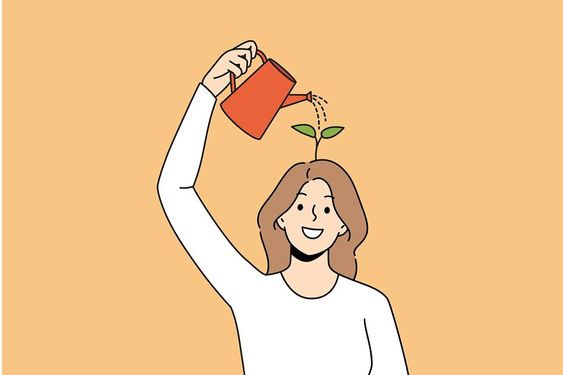This article was published in The Citizen Newspaper, Tanzania on 10th October, 2023.
There is currently a noticeable rise in cases and situations that suggest a massive rise in the number and variety of mental health problems globally and in Tanzania as a country. This challenge cuts through all age groups, genders, walks of life, social situations, educational backgrounds, economic levels, etc. Statistics from the WHO state that at least 1 in every 8 people lives with mental health conditions.
Mental health is key to the life of the society. It is a prerequisite for physical health. At the adoption of “Transforming the World: the 2030 Agenda for Sustainable Development” on September 25, 2015, the United Nations placed mental health on equal footing with physical health. Both are equally important for the growth and progress of people and the society.
Left untreated, mental health disorders and problems hinder people from relating meaningfully and retards their abilities for productive work as it hampers creativity and concentration in the work. Mental health problems do not make people less human; this is why we ought to protect their rights and dignity as persons.
World Mental Health Day is marked on the 10th of October every year, to call upon the entire global community to be aware of mental problems and to slowly erase the stigma that is attached to them. Alongside raising awareness, since 1992 when World Mental Health Day started, the goal has been to improve the availability of mental health services globally. The theme for the observance of this year is “Mental health is a universal human right.”

According to the World Mental Health Day campaign resources published by the World Health Organization (WHO): “Mental health is a basic human right for all people. Everyone, whoever and wherever they are, has a right to the highest attainable standard of mental health.”
“This includes the right to be protected from mental health risks, the right to available, accessible, acceptable and good quality care, and the right to liberty, independence and inclusion in the community.”
Local Intervention
Locally in Tanzania, there is a colossal lack of awareness regarding different forms of mental problems. Generally speaking about mental problems most people would think of only people who are ‘mad.’ Most conditions are doggedly attributed to spiritual attacks and witchcraft.
There are also revealing behaviours that are socially tolerated without people knowing that such people need urgent mental health help.
For example, in developed nations, certain conditions can be diagnosed from early stages and children and adolescents get help.
Among them are anxiety disorders, attention-deficit/hyperactivity disorder (ADHD), Autism Spectrum Disorder (ASD), Eating disorders, depression and other mood disorders, Post-traumatic stress disorder (PTSD), Schizophrenia, etc. These are rarely diagnosed in Tanzania.
Having low numbers in diagnosis does not mean the problems do not exist, it means people are not being helped, which makes their later development into adulthood worrisome and under-achieving. While most of these conditions generally affect the abilities to learn in children and adolescents, it is easier to help them when they are diagnosed, as diagnosis makes their special needs clear.
Now, what happens when there is no diagnosis? Obviously, children with special needs due to their mental health conditions will be mixed with others without special needs. This makes both learning and teaching difficult.
Teachers may be angry with students, thinking that they are arrogant or lazy, while genuinely they have weaknesses which are not being properly addressed. I recall attending primary school with a few people who were constantly being punished for underperforming. More than a decade later I came to realize that that treatment was not just. Children need to be examined more keenly because most people develop mental health conditions at early ages, and mostly from family circles, the environment and the people who surround them.
Challenges to prioritize
There is a high rate of suicide, self-hate and self-harm at the moment, calling for urgent intervention among young people. If possible, the energy should be invested among people below the age at which most young people commit suicide. Suicide, according to experts, is a result of a long-time build-up of stress and anxiety.
However, the young people of today, dubbed “Generation Z” are said to be highly sensitive and fragile. This means, the ‘principle’ does not necessarily hold, as they can snap all of a sudden and act in manners that can fit the description of extreme thoughtlessness. There is also a rise in the number of young people who harm other people in different ways, and sometimes for no reason.
Locally, we need a working system of advocacy for mental health and also for supporting and accompanying mental health patients. Promoting mental health goes alongside the Sustainable Development Goal (SGD) 3 under the universal health coverage targets. The government too needs to work out the unemployment puzzle. Poverty and difficulties in life make people develop mental health problems alongside falling into addictions, substance abuse, and irresponsible living.
